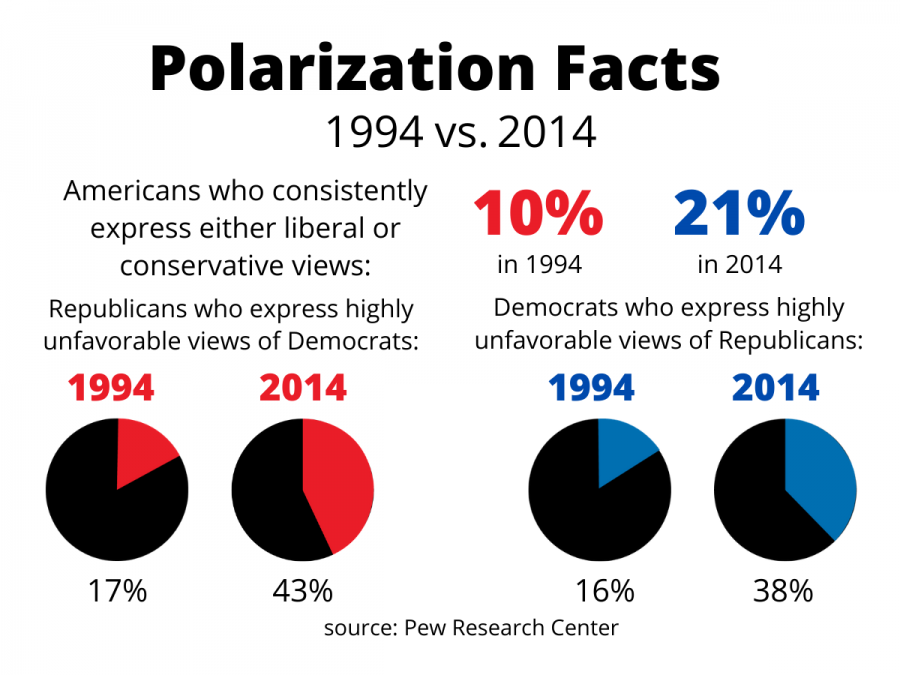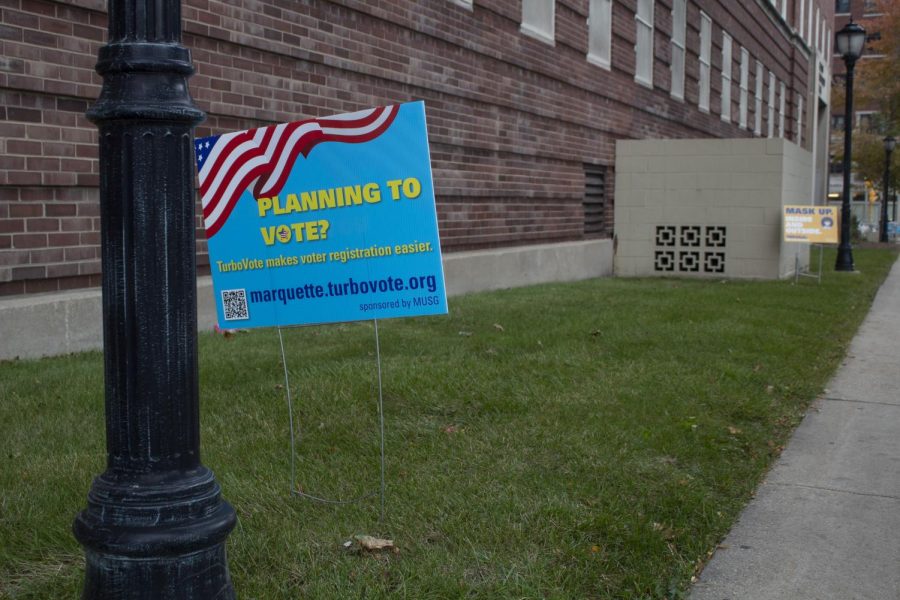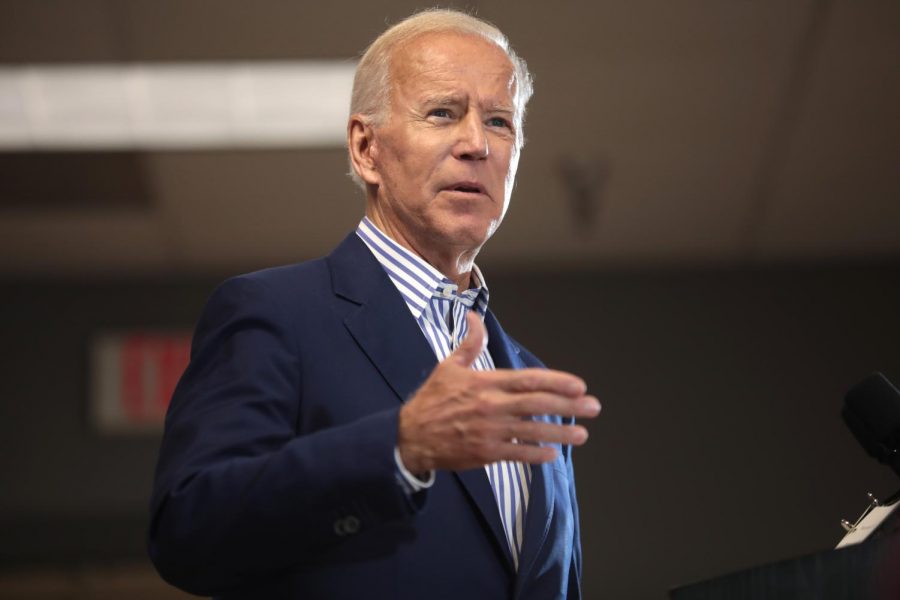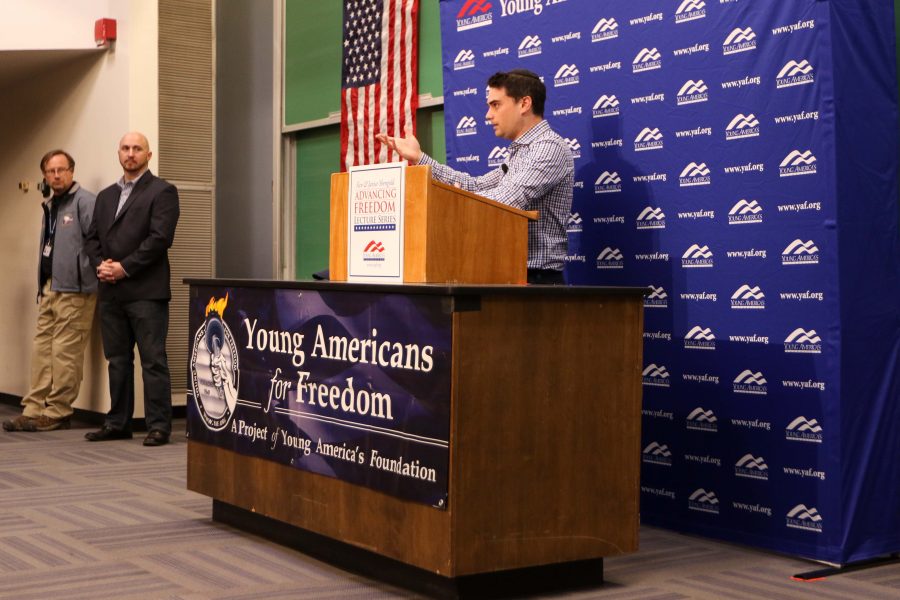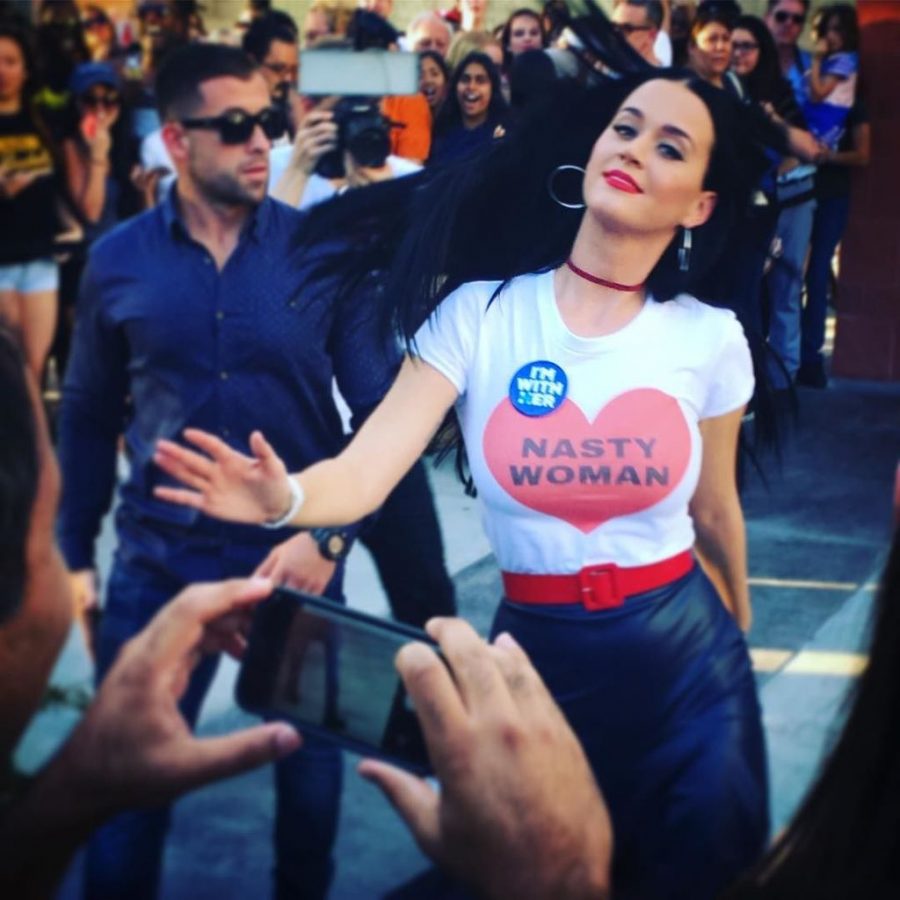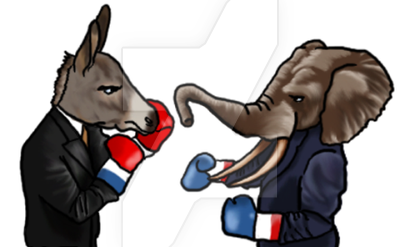In recent years, one phenomenon has become more and more prevalent in politics: polarization, or the growing divide between liberal and conservative.
“This trend has a few implications,” adjunct professor of political science Brandon Savage said. “For one, more people now default to their pre-existing partisan tendencies come election time, meaning people are far more likely to vote for a preferred party regardless of who the candidate may be or what views they advocate for.”
Reputable data seems to support this claim.
In 2014, Pew Research, a non-partisan “fact tank” according to its website, reported the percentage of Americans who consistently express either liberal or conservative views has more than doubled over the past two decades from 10% to 21%.
Pew Research, in the same series of surveys, also found “partisan antipathy” increased significantly during this period. Among Republicans, the percentage that held “very unfavorable” views of the Democratic Party jumped from 17% to 43%. Similarly, the percentage of Democrats who held very unfavorable views of the GOP also rose sharply 16% to 38%.
“From the perspective of either party, the ‘other side’ is becoming not only unacceptable, but evil,” Savage said.
Although the reasoning behind America’s increasingly polarized environment is debated between academics and political pundits, Savage said he believes the cause lies in media availability.
“Because of the sheer quantity of information at our fingertips thanks to the internet, we have the ability to seek out whatever info we want to and to create our own personal networks,” Savage said. “However, the information we choose to find often does little to challenge our pre-existing beliefs and instead reinforces them. Essentially, we create echo chambers.”
To avoid becoming polarized, Savage said he recommends voters should be informed beyond the traditional news sources they typically follow. If someone is an avid consumer of MSNBC or CNN, which tend to have a liberal leaning, Savage said it may be of some benefit to watch Fox News occasionally, which has a pronounced conservative leaning.
However, avoiding polarization altogether is still a difficult task. Many are raised in households and communities with a clear partisan identity, Savage said. Political preferences are consequently determined long before someone is of age to vote.
“It’s important to expose ourselves to all ends of the political spectrum,” second-year law student and founder of the recently created Our Democracy USA Brian Hendricks said.
Our Democracy USA is a student-led organization dedicated to electing progressive, grassroots candidates to all levels of government in 2020 Hendricks said.
Despite the organization having a political leaning, Hendricks said he and other members avoid polarization by focusing on issue politics rather than partisan identities.
“I encourage young people, especially first-time voters, to find an issue they’re passionate about, do their research, and vote for whoever they feel is best fit to assess that issue — regardless of party lines,” Hendricks said.
Hendricks said he also urges voters to pay attention to the entire political scene — not exclusively the primaries or the presidential race.
“In the upcoming (Wisconsin) April 7 election, not only will the primary elections be underway, but also various local elections and a vastly important State Supreme Court race between Justice Daniel Kelly and Dane County Judge Jill Karofskym,” Hendricks said.
This story was written by Nicole Laudolff. She can be reached at [email protected].

